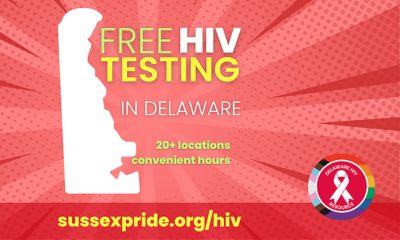World
Mexicans with HIV/AIDS struggle with treatment access
Government in 2019 created new health care entity
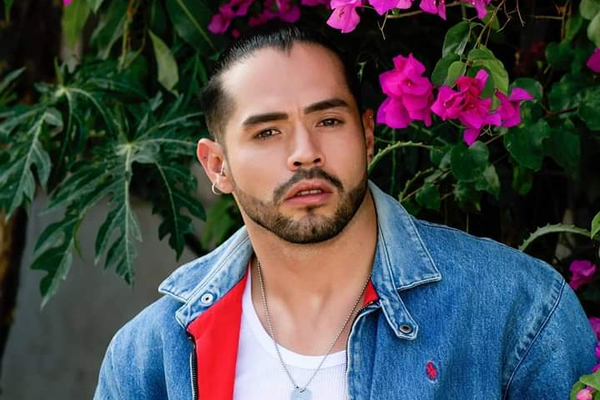
Roberto Navarro has been a dancer since he was 17. Jazz became his passion and he fell in love with classical dancing after he took many classes. And he began to teach four years later.
“I’m so happy when I teach dancing to my girls because they bring me so much joy, I feel like I help my girls to become better women, without noticing I’m some kind of a therapist,” Navarro told the Washington Blade.
He discovered the discipline of dancing in heels in 2014, which made him connect and explore more with his sexuality. He did, however, suffer a lot of bullying because of it.
Navarro — a 33-year-old gay man who is originally from Sahuayo de Morelos in Michoacán state — currently owns a dance salon. Navarro said he started to become an entrepreneur, but it hasn’t been easy because of the pandemic.
He was diagnosed with HIV in 2016. Navarro suffered from depression for several months after he learned his status.
“I woke up very overwhelmed in the morning thinking that I had to go to the hospital to make a long line of patients; to have blood drawn for fast screening tests,” he said. “We arrived at 7 in the morning and left until 1 in the afternoon.”
Navarro has been receiving treatment for almost five years, and he is still dancing.
“Subsequently, I went to my consultations every three or six months depending on my results,” he stated. “By the third month I was undetectable.”
Navarro started with Atripla, an antiretroviral drug he received through Mexico’s Seguro Popular, and he was undetectable a month later.
A shortage of Atripla forced a change to Biktarby after President Andrés Manuel López Obrador in 2019 scrapped Seguro Popular and created the Health Institute for Wellbeing (INSABI). The pharmaceutical company Gilead has said there are many counterfeit versions of the drug on the market.
Seguro Popular in 2018 had almost 52 million beneficiaries. The National Council for the Evaluation of Social Development Policy (CONEVAL) said INSABI at the end of 2020 had more than 34 million beneficiaries.
Antiretroviral drugs have been available in Mexico since 2003, although the Mexican health system is divided into various subsystems based on where one works.
- Institute of Social Security and Services for State Workers (ISSSTE)
- Mexican Institute of Social Security (IMS)
- INSABI (Health Institute for Wellbeing) that was previously known as the Seguro Popular
They vary in the time it takes to receive medication and the time for CD4 viral load tests. The availability of appointments with infectious disease specialists varies in each of the three public health systems.
People with INSABI will take longer to get tests and have access to doctors. It must also be recognized that everyone, in theory, has the possibility of accessing medicines, but it also depends on the states in which they live.
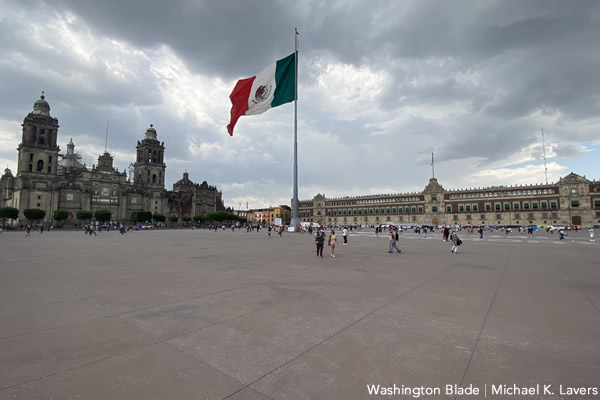
From Seguro Popular to INSABI
The number of people without access to healthcare in Mexico rose from 20 million to almost 36 million between 2018-2020. INSABI, more than a year after its creation, still does not completely cover the same amount as its predecessor.
INSABI is an independent agency through the Ministry of Health that aims to “provide and ensure the free provision of health services, medicines and other inputs associated with people without social security.” The General Health Law says it was to replace Seguro Popular, which was in place from 2004-2019.
“The situation for treatment right now, it’s quite complex, particularly because there have been many changes in the health department of Mexico, and this has to do with the fact that in 2003 when the Seguro Popular was established; there was an increase to comprehensive care for people living with HIV and resources for prevention strategies which are mainly handled through civil society organizations that obtained money from the government.” stated Ricardo Baruch, who has worked at the International Family Planning Federation for almost 15 years.
López,, who took office in 2018, sought to eliminate Seguro Popular, which was the mechanism by which access to antiretroviral drugs were given to most people living with HIV in the states with greater vulnerability. This change was done in theory to expand access for everyone, but the opposite happened.
There is less access due to the modification of purchasing mechanisms and a huge shortage throughout the country. Baruch says this situation has caused a treatment crisis across Mexico.
“The truth is that the Seguro Popular helped me a lot to have my treatments on time, what I do not like is that there is not enough staff to attend all the patients that we are waiting for our consultations,” said Erick Vasquez, a person who learned in February he is living with HIV.
Vasquez, 34, is an artist who works in Guadalajara and Playa del Carmen.
Vasquez did not have health insurance like other people through IMS. He obtained access to Seguro Popular through an organization that supports people with HIV, but he has to wait until October for his first appointment.
Vasquez, who has a very low viral load, in March began a job through which he obtained IMS. He had access to his treatments through it.
He received three months worth of Biktarvy at the end of June; one prescription for each month. He said the drug is not difficult to obtain.
“I have not had any problem with the medication, it is not difficult to get it when you are on the insurance, but there is still a long time left until October,” said Vasquez.
The cost of the antiretroviral treatment in Mexico is approximately $650 per month, and one bottle has only 30 pills.
“I have not had side effects, I have not had nausea, I don’t vomit, I take a pill daily, it is one every 24 hours,” Vasquez said. “I feel very well and I hope very soon to be undetectable.”
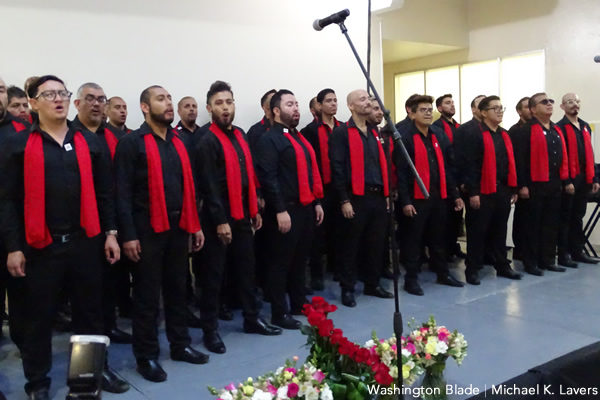
Infrastructure over health
Prevention resources were eliminated, and health resources today are used to finance the Felipe Ángeles International Airport at the Santa Lucía military base in Zumpango in Mexico state, a new refinery, the Mayan train and other major infrastructure projects. And this causes many people who want to access treatment not to receive them. It takes much
The cost of the work, including the land connected with the Mexico City International Airport and various military facilities, is set at 82,136,100,000 Mexican pesos and there are provisions to serve 19.5 million passengers the first year of operations, according to a report from the Secretariat of National Defense (SEDENA).
There are, on the other hand, far fewer HIV tests and this shortage has led to a much higher arrival of late-stage HIV cases and even AIDS in hospitals. This trend is particularly serious among transgender women and men who have sex with men.
“Here in Mexico we concentrate the HIV pandemic, and that we are at a time when this issue of shortages has not stabilized, that there is already more clarity in purchases, but it is well known that all these changes in health systems continue for a year over the years they cause the situation to be increasingly fragile and in the matter of migrants that previously there was certainty so that they could access medicines through the Seguro Popular, now there is a legal limbo for which in some states it depends: on the states, the clinic or social worker; whether or not they give you medications,” said Baruch.
“If you are not a resident or a national here in Mexico, this is a matter won for people in transit seeking political asylum or who had stayed in Mexico,” he added.
Migrants lack access to HIV treatment
Mexico is located between the three regions with the world’s highest rates of HIV: the Caribbean, Central America, and the U.S. This has been used as a foundation for a culture of hatred against migrants, according to Siobhan McManus, a biologist, philosopher, and researcher at the Center for Interdisciplinary Research in Sciences and Humanities of the National Autonomous University of Mexico.
The lack of opportunities, violence and climate change that forces people whose livelihoods depend on agriculture to abandon their homes prompts migration from Central America.
Most migrants — LGBTQ or otherwise — experience violence once they arrive in Mexico.
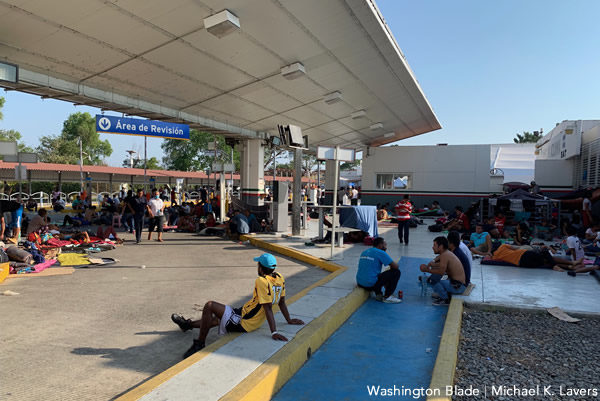
Chiapas and other states have created an extensive network of clinics known by the Spanish acronym CAPASITS (Centro Ambulatorio para la Prevención y Atención en SIDA e Infecciones de Transmisión Sexual) that are specific HIV and STD units in major towns. They are often within close proximity to most people’s homes.
Sonora and Chihuahua states, which border the U.S., often have such clinics in only one or two cities. This lack of access means people will have to travel up to six hours to access these treatments.
People who have already been receiving treatment for a long time were previously given up to three months of treatment. They now must travel every month to receive their medications because of the shortages.
PrEP available in Mexico
The shortage of medical drugs for people who already live with HIV is a current issue for the Mexican government, but they have made free PrEP available for those who want to prevent themselves from the virus.
Ivan Plascencia, a 24-years old, who lives in Guadalajara, the capital of Jalisco state , has been using PrEP for several years since he became sexually active and he never had any complaints about the medication. Plascencia instead recommends his close friends to take advantage of this prevention drug that is available in one of the CAPASITS where he lives.
Post-pandemic screening tests
There are an estimated 260,000 people in Mexico who are living with HIV. Upwards of 80 percent of them knew their status before the COVID-19 pandemic.
The number of new cases that were detected in 2020 were 60 percent less than the previous year, but this figure does not mean HIV rates have decreased.
In Jalisco, which is one of Mexico’s most populous states with upwards of 8 million people, there was a 40 percent increase in positive cases in 2020 compared to 2019. This increase has put a strain on service providers.
World
Out in the World: LGBTQ news from Europe and Asia
Latvia’s civil unions law took effect Monday

LATVIA
Latvia’s law allowing same-sex couples to form civil unions came into effect Monday, and the first queer couples have already registered their unions in the Baltic nation.
Maksims Ringo and Janis Locs were the first same-sex couple to register their civil union. They did so in a ceremony at a legal office in the capital, Riga, where they exchanged silver rings, stating that they were saving gold rings for a date when Latvia legalizes same-sex marriage.
“I feel excited, kind of emotional about it as well because it is a really big step and not only for us, for the country itself. And being first, it’s all the publicity that comes with it as well. It kind of is a bit, I would say, a bit stressful, but at the same time I feel happy that we can finally do it,” Locs told Reuters.
Latvia amended its constitution to ban same-sex marriage in 2005, but in 2020, the Constitutional Court ruled that the state must give same-sex couples the same benefits that straight married couples have. In 2022, a deadline imposed by the court lapsed, and couples began applying to the courts to have their relationships recognized.
Last year, the Latvian parliament finally passed a law formalizing same-sex civil unions, but the compromise legislation has frustrated some LGBTQ activists in the country as it leaves out key rights demanded by same-sex couples. Latvia’s civil unions do not allow couples to adopt children, nor do they get key inheritance rights, they’re concluded at a notary office instead of at the civil registry, and the government still will not recognize foreign same-sex marriages.
The bill was also bitterly opposed by conservative, anti-LGBTQ groups. They attempted to force a referendum to block the bill but were unable to come up with the required signatures before the legal deadline.
With legal civil unions in Latvia, all but five EU countries recognize some form of same-sex union: Lithuania, Poland, Slovakia, Bulgaria, and Romania.
In neighboring Lithuania, a civil union bill awaits a final vote in parliament but has stalled amid infighting between liberal and conservative factions of the coalition government. This week, the liberal faction threatened to block the appointment of a European commissioner unless the conservatives agreed to pass the bill.
In Poland, the governing coalition appears to have finally agreed to pass a civil union bill, albeit one that has been watered down significantly. The resulting bill will not allow any adoption rights, nor a common surname, and will be concluded by notaries and without a ceremony rather than civil registries. The government hopes to bring the bill forward this month.
The European Court of Human Rights has ruled that all member states must provide some form of civil union to same-sex couples to be in compliance with the nondiscrimination and family rights guaranteed by the European Convention on Human Rights.
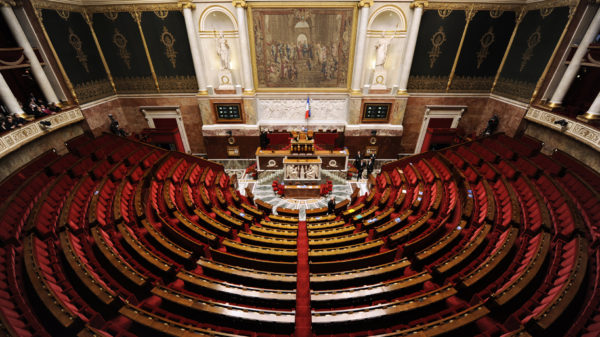
FRANCE
Voters gave a big boost to the far-right National Rally party in Sunday’s first-round parliamentary elections, with the Rally taking 33 percent of the vote, while the left-wing New Popular Front took 28 percent, and President Emmanuel Macron’s centrist Together bloc took 21 percent.
Parties are now jockeying for voter support in the second round, and NPF and Together have begun discussions at mutual endorsements to block the National Rally.
In France’s system, if no candidate in a given district wins 50 percent of the vote, the top two vote-getters, and any candidate who gets at least 12.5 percent of registered voters advances to the second round, which is decided by plurality vote. Because of higher-than-usual turnout of 67 percent, there are a large number of three-way races in the second round — over 300 according to official results, when the previous record was 76.
The left-wing NPF has announced it will withdraw any candidates who advanced and placed third on the ballot, in order to create a “republican front” against the National Rally. While Macron has not made a formal statement on withdrawing third-place candidates, his prime minister, Gabriel Attal, has called on third-place candidates to step aside.
The National Rally has a long history of campaigning against LGBTQ rights but has not made that central to its program in this election, where it has focused on pocketbook issues and rejection of immigration. The National Rally has long opposed same-sex marriage, and its current leader has campaigned and voted against allowing lesbians to access IVF and supports a bill to ban gender care for minors.
Several reports have emerged of National Rally supporters committing homophobic attacks in France.
A group of National Rally supporters allegedly attacked a gay teenager in Paris after the results of last month’s European Parliament elections were announced and National Rally was shown to win the largest number of sets. They were reported to have shouted “You’ll see when Bardella is in power and Hitler comes back!” and “In three weeks, we will be able to smash up f*gs as much as we like. I can’t wait.” The attackers were arrested.
GEORGIA
A package of extreme anti-LGBTQ bills sailed through first reading in the Georgian parliament on a 78-0 vote that was boycotted by most of the country’s opposition parties.
Georgia has been rocked by protests since the governing Georgian Dream party introduced a passed a “foreign agents” law, which requires any organization that receives funding from out of the country to register with the government as a foreign agent. The law was inspired by a similar law in Russia and was designed to undermine opposition groups, media, and nongovernmental organizations that are often critical of the government.
The anti-LGBTQ bills are an extreme package of legislation that was also inspired by Russia. The bills ban recognition of any same-sex relationships, forbid recognition of gender other than birth sex, forbid any medical treatment for gender change, and criminalize any advocacy for LGBTQ rights. The government says it hopes to pass the legislation by the fall ahead of national elections in October.
The bills are also designed to undermine the opposition, by forcing them to defend LGBTQ rights, which remain deeply controversial in the conservative Christian country. Opposition leaders have also made it clear that their boycott of the bill does not mean they support LGBTQ rights.
Both the anti-LGBTQ bills and the foreign agents bill have put the country on a collision course with the EU, which it has expressed a desire to join, and which granted it candidate status last year.
EU accession is very popular among the Georgian public, but the Georgian Dream party is more closely aligned with Russia, and frequently demonizes the EU by equating its values with LGBTQ rights.
Last week, EU candidates Moldova and Ukraine opened formal negotiations to join the bloc, although it is expected that it will be many years before membership is granted.
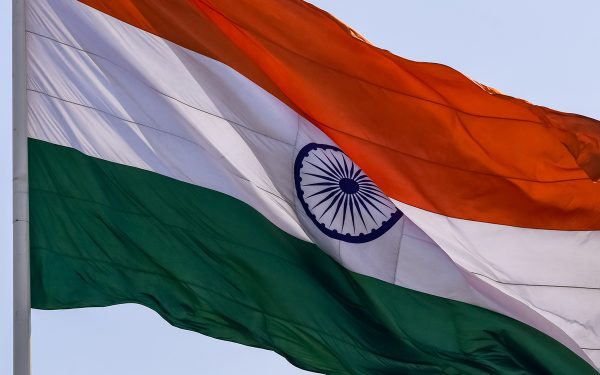
INDIA
The high court of India’s Kerala state upheld the right of LGBTQ people to live autonomously, as it rejected a petition from the parents of a 23-year-old who sought to have their daughter committed to a mental institution to “treat her sexual orientation.”
The young woman had fled her family and was living with her partner, a transgender man. Her family members repeatedly attempted to violently abduct her from her new home.
The court ruled that the woman has a right to live her life on her own terms and that sexual orientation is an innate part of a person’s identity.
The court also directed the parents to hand over all of their daughter’s personal documents, which they had been withholding, in an attempt to force her to return to them, and the court warned the family against committing violence against her.
Same-sex relationships are not illegal in India, although last year the Indian Supreme Court ruled that the government does not have to recognize same-sex marriage, leaving that question to parliament.
HONG KONG
Ten same-sex couples from Hong Kong were legally married in the U.S. over the internet this week, in a mass ceremony to celebrate Pride week.
The 10 couples took advantage of a program available through the state of Utah, which allows people to get married via an internet ceremony.
Utah has become a go-to destination for same-sex couples seeking to get married even though they live in countries that don’t recognize same-sex marriage. Utah allows couples to get married even if they’re not physically present in the state, while most states require couples to at least be present, if not resident in the state.
Hong Kong does not currently allow same-sex marriage, although last year its Court of Final Appeal ruled that the local government should offer some form of relationship recognition to same-sex couples within two years. That deadline comes up next September.
“In Hong Kong, there’s not yet a way to go to a marriage registry to get married, but there’s still this way we can offer for them to realize their dreams of getting married,” wedding organizer Kurt Tung told the Associated Press.
Canada
Toronto Pride parade cancelled after pro-Palestinian protesters disrupt it
Protest took place more than three hours after it began

Toronto Pride parade organizers on Sunday cancelled the annual event after a group of pro-Palestinian protesters disrupted it.
Media reports indicate more than two dozen protesters blocked the parade near the intersection of Yonge and Wellesley Streets, and chanted “from the river to the sea” and “Pride was a riot.”
The pro-Palestinian protestors that brought the Toronto Pride Parade to a stop chant the genocidal “From the river to the sea” slogan as they continue to block the parade’s path.
Footage by @BethBaisch pic.twitter.com/SMldTpLFvk
— The Post Millennial (@TPostMillennial) June 30, 2024
The Toronto Star reported the protesters disrupted the parade at around 5:30 p.m., more than three hours after it began. Toronto Pride around 45 minutes later announced the parade’s cancellation.
“Today, we made the decision to cancel the remainder of the Pride Parade out of our commitment to ensuring public safety,” they said in a statement. “While we deeply respect and uphold everyone’s right to peacefully protest, our foremost priority is the well-being of all participants and spectators.”
“We recognize the Pride parade as a highly anticipated event that many organizations and individuals eagerly prepare for,” it added. “We empathize with those who were looking forward to participating and regret any inconvenience caused by this decision.”
The Coalition Against Pinkwashing organized the protest.
Protesters disrupt NYC Pride parade
This year’s Pride Month took place eight months after Hamas launched its surprise attack against southern Israel.
The Israeli government says Hamas militants killed roughly 1,200 people on Oct. 7, 2023, including at least 260 partygoers and others at the Nova Music Festival. The Israeli government says upwards of 80 people who were taken hostage on Oct. 7 remain alive in the Gaza Strip.
The Hamas-controlled Gaza Health Ministry says more than 35,000 people have died in the enclave since the war began. The National LGBTQ Task Force and Outright International are among the groups that have called for a ceasefire.
The New York Daily News reported the New York Police Department on Sunday arrested 10 pro-Palestinian protesters who disrupted the city’s annual Pride parade near the Stonewall Inn. The newspaper said those who the NYPD took into custody, among other things, threw red paint onto a pickup truck inside police barricades.
The Telegraph on Saturday reported London police arrested more than 30 pro-Palestinian activists to prevent them from disrupting the city’s annual Pride parade that took place on the same day.
A Wider Bridge, a group that “advocates for justice, counters LGBTQphobia, and fights antisemitism and other forms of hatred,” last month called upon Pride organizers to ensure Jewish can safely participate in their events.
Africa
Lesbian South African MP named to country’s new Cabinet
Steve Letsike won a seat in the National Assembly on May 29
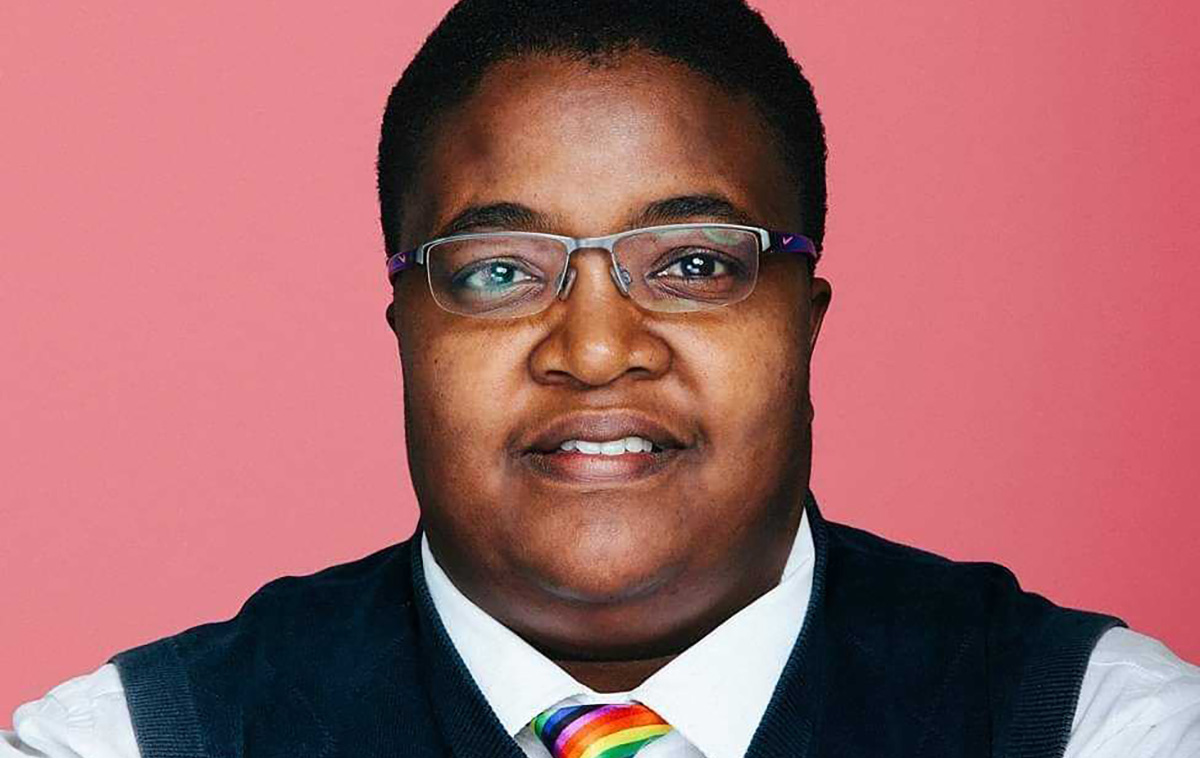
South African President Cyril Ramaphosa on Sunday appointed lesbian MP Steve Letsike to his Cabinet.
Letsike, founder of Access Chapter 2, a South African advocacy group who is a member of the African National Congress that Ramaphosa leads, will be the country’s deputy minister of women, youth, and people with disabilities.
Letsike won a seat in the South African National Assembly in national and provincial elections that took place on May 29.
The ANC lost its parliamentary majority that it had had since Nelson Mandela in 1994 won the South African presidency in the country’s first post-apartheid elections. Ramaphosa on Sunday announced Letsike and other new Cabinet members after the ANC and nine other parties agreed to form a National Unity Government.
The Washington Blade has reached out to Letsike for comment.
-

 Canada1 day ago
Canada1 day agoToronto Pride parade cancelled after pro-Palestinian protesters disrupt it
-

 Theater5 days ago
Theater5 days agoStephen Mark Lukas makes sublime turn in ‘Funny Girl’
-

 Baltimore4 days ago
Baltimore4 days agoDespite record crowds, Baltimore Pride’s LGBTQ critics say organizers dropped the ball
-

 Sports4 days ago
Sports4 days agoHaters troll official Olympics Instagram for celebrating gay athlete and boyfriend

